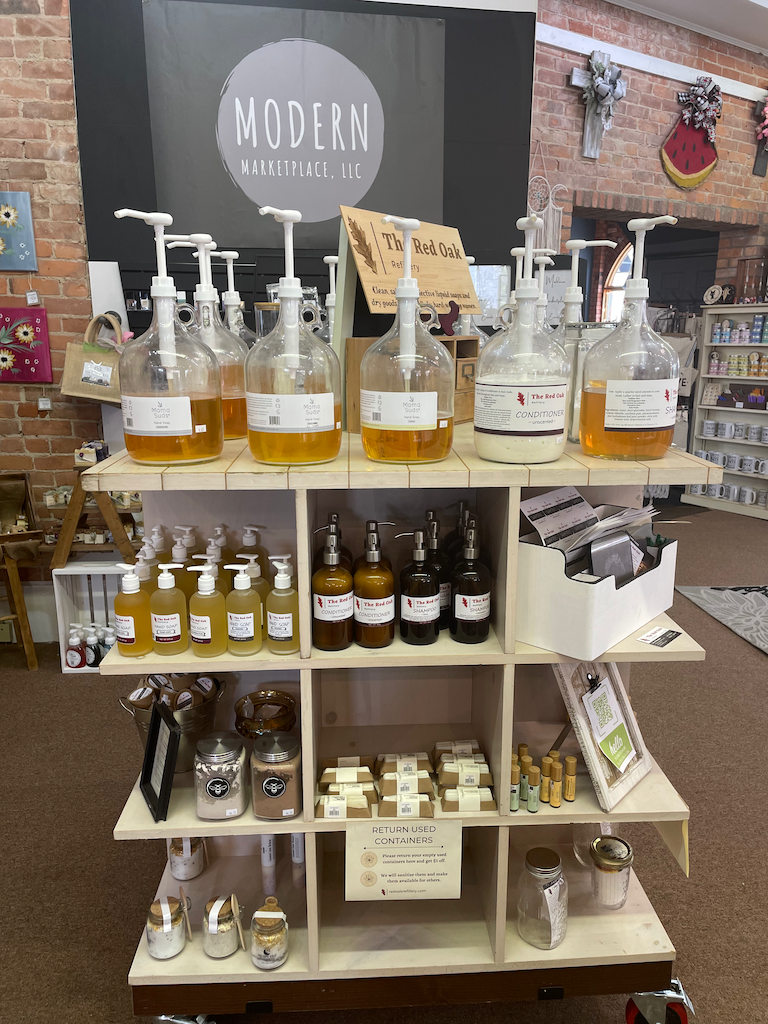
The Rise of Refilleries
Embracing Sustainability for a Better Future: The Rise of Refilleries
With pollution and environmental concerns on the rise, organizations like MamaSuds in Davisburg, Michigan are leading the charge towards sustainable living. As alarming amounts of plastic waste continue to wreak havoc on our oceans and ecosystem, a solution emerges: refilleries. Let's explore the concept of refilleries and highlight the importance of embracing these eco-friendly alternatives in daily life.
Understanding the Plastic Problem
Traditional shopping habits in America perpetuate the cycle of waste and contribute to the plastic pollution crisis. From single-use plastic bottles to packaging, our throwaway mentality contrasts starkly with cultures where bringing reusable bags and containers for shopping is standard practice. Over 200 million tons of plastic currently litter our oceans, posing severe threats to marine life and coastal ecosystems. The urgency to reduce this burden is palpable.
Refilleries: The Bridge to Sustainability
Writing a new chapter in sustainable consumption, refilleries are becoming increasingly prominent across nations. Last year witnessed the establishment of numerous zero-waste stores, where packaging is minimized, and safer product alternatives are advocated. Two such examples locally is The Red Oak Refillery—an inspiring refilling station concept in Northern Oakland County and 86 Plastic- a brick and mortar in Southern Oakland County.
End Plastic Pollution at its Source:
By favoring these stations, patrons end the vicious plastic consumption cycle themselves. Instead of discarding empty containers, individuals can return with their own receptacles, purchasing liquid soaps, dish powder, or other necessary items by refilling. This practice ensures that plastic usage drastically reduces, aligning with the urgent need for environmental sustenance.
A Gateway to Safer and Sustainable Alternatives:
Beyond reducing plastic waste, another advantage of refilleries is the access to eco-friendly and organic products. MamaSuds specializes in producing natural and safe soaps and household cleaning alternatives. Collaborating with refilleries, MamaSuds ensures its products reach eco-conscious consumers at conveniently-located sustainable stores.
Simple Steps Each of Us Can Take
Making the transition to sustainable practices may initially feel unfamiliar or inconvenient, but individuals play a pivotal role in driving positive change. Referring to your own tote bags during shopping can profoundly reduce wasteful plastic bags. As stores often offer scan-and-pay options, personally bagging items using environmentally-friendly totes can streamline the process while minimizing impact.
Embarking on a Journey of Change
Setting sail for a sustainable future requires conscientiously introducing new practices into our routine. As we're reminded voluntarily taking our own bags and containers, refraining from defaulting to convenience can seem novel and challenging. An essential part of paving this eco-conscious path lies in proactively placing bags and containers within our daily grabs, forging lasting habits.
Take Action: Find Your Local Refillery
Discovering nearby sustainable outlets and experiences enhances our journey towards conscious consuming. Utilize resources like the Refillery Collective Directory to locate refilleries and zero-waste shops in your vicinity. By investing in such enterprises, we build a community reinforcing sustainable values and fostering environmental kinship throughout the neighborhood.
Conclusion:
MamaSuds and organizations like it exemplify spearheading establishments advocating sustainable living. Heightened awareness about the ramifications of plastic waste necessitates dire actions at all levels. Choosing to purchase goods at refilleries promotes economically viable solutions while incorporating sustainability into our daily lives. Remember, change begins small—an optimistic mindset and individual choices ripple into collective transformation, fostering thriving communities with a marked commitment to safeguarding our shared planet for generations to come.



Leave a comment